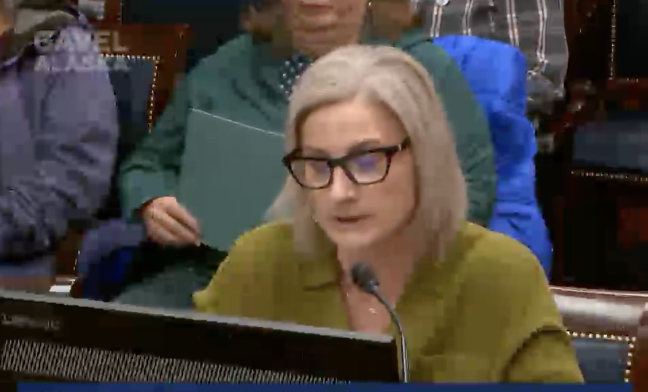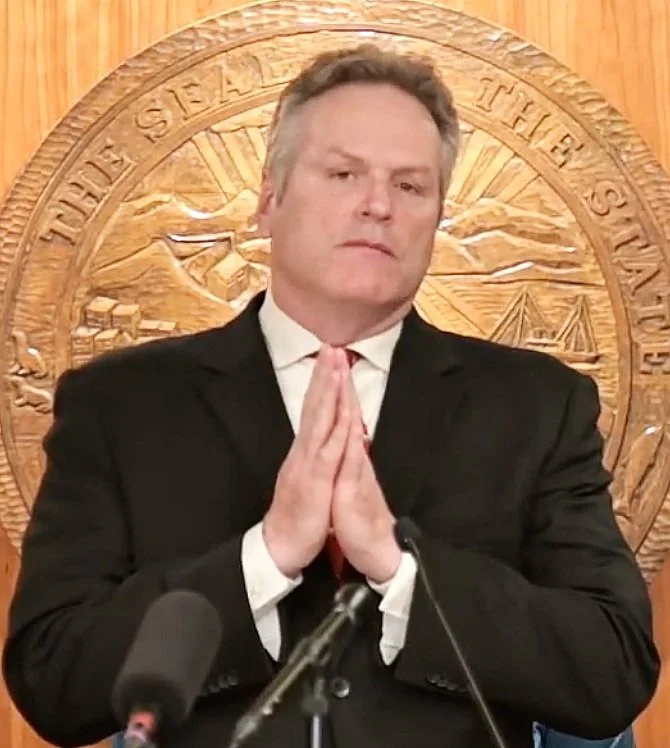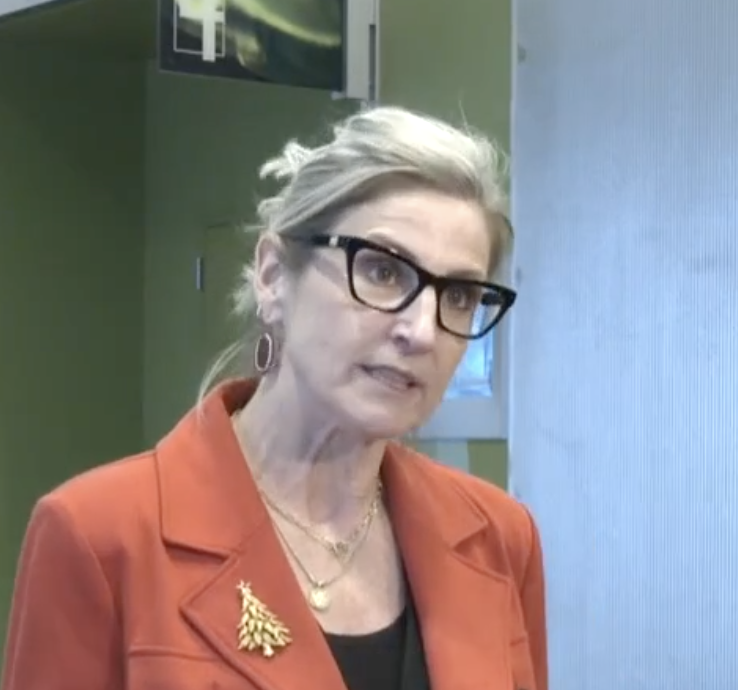It appears that the Dunleavy and House GOP “plan” to stuff unexamined education items into a bill and pass it without public review has drawn enough opposition to slow it down, which is good. The attempt to rework the charter school model to take power away from local school boards is one of the unexamined elements.
Read MoreThe Dunleavy approach, now the Deena Bishop approach, is to take power away from local school boards and concentrate it in the hands of the state education bureaucracy and the state school board that is made up of Dunleavy supporters.
Read MoreUnder the proposed $25 billion corporate merger between the companies that own Fred Meyer and Safeway, 14 stores in Alaska would be sold to C&S Wholesale Grocers, a company that hasn’t been in the retail business in Alaska.
Kroger, which wants to acquire Albertsons, says it needs a merger to become larger and be better able to compete, so no one should expect that the 14 stores to be sold to the smaller company would be long for this world. Kroger has not identified the 14 stores.
Read More
The state is dutiful about reporting certain expenses on its online checkbook, such as the $600,000 or so paid to Gorilla Fireworks LLC for right of way condemnation and relocation in the latter months of 2023.
But nearly every statehood defense industry contract is missing from the online database.
Read MoreGov. Mike Dunleavy and his legislative allies want to strip local school boards of a key power in deciding the future of charter schools.
They want to give the state Board of Education, controlled by Dunleavy supporters, the power to approve charter schools in local communities across Alaska.
Read MoreThe U.S. Supreme Court rejected the Dunleavy administration’s anti-union crusade Tuesday, with a brief notice saying the appeal was denied.
Attorney General Tregarrick Taylor hired the $600-per-hour attorneys of Consovoy McCarthy to take on this losing effort.
Read MoreThe perjury indictment from the grand jury against one of David Haeg’s targets, retired District Judge Margaret Murphy, will eventually be tossed by the courts because of its flaws.
But the injustice set in motion by Attorney General Tregarrick Taylor’s pandering deserves a complete investigation.
Read MoreAttorney General Tregarrick Taylor bowed to right-wing demands to cripple the role of prosecutors in a secret grand jury proceeding that became a “vigilante circus,” as the lawyer for the chief target of a runaway grand jury puts it.
Other circuses may follow, as the Dunleavy administration is now asking to spend $502,000 a year to hire a lawyer, a paralegal and an assistant to work with “investigative grand juries.”
Read MoreFormer Attorney General Craig Richards, now the Dunleavy administration’s statehood defense coordinator, and Attorney General Tregarrick Taylor have signed an amended contract that violates state procurement regulations, paying Richards $12,000 a month,
Read MoreRetired Alaska District Court Judge Margaret Murphy of Homer should not become a victim of mob rule.
But she already has had to suffer through what her attorney rightly calls an “inappropriate, illegal and an unfair proceeding.”
Read MoreThe U.S. Supreme Court found that the overreach claim brought by Consovoy McCarthy for Dunleavy and AG Tregarrick Taylor was an ordinary challenge to the action of a federal agency, in this case the EPA veto of the Pebble Mine.
Read MoreIn a report kept secret by the state for years, an independent lawyer hired by former Gov. Bill Walker to review the Fairbanks Four case in 2015 concluded that the wrong men had been jailed for the 1997 killing of John Hartman.
“I have come to the firm belief,” wrote attorney James N. Reeves on October 1, 2015, “that the Fairbanks Four did not commit the crimes of which they were convicted. In other words, in my view the information I reviewed constitutes clear and convincing evidence that they are innocent.”
Read MoreBrian O’Donoghue, one of the best investigative reporters in Alaska, is nearing completion of his long-awaited book “The Fairbanks Four: Murder, Injustice and the Birth of a Movement.”
O’Donoghue is to speak Friday at 3 p.m. at the Morris Thompson Center auditorium. His book, to be published by Sourcebooks, is available for advance ordering now at major outlets.
Read MoreAnyone who runs for the Legislature this year against an incumbent has a ready-made campaign issue—the underhanded manner by which legislators raised their pay from $50,400 to $84,000, starting this week.
They can thank Gov. Mike Dunleavy and incumbents in both parties for this 67 percent gift.
Read MoreSomeone once said that whether auld acquaintances should be forgot really depends on what kind of old acquaintances you have.
On New Year’s Eve and New Year’s Day, “Auld Lang Syne” gets ritualized or loving attention that is denied auld acquaintances 363 days a year.
Read MoreIn the middle of the last century, Larry Fanning was a premier editor in San Francisco and Chicago. After he moved to Alaska in 1966, newly married to Kay, his third wife, the only thing he didn’t have much left of was time.
Read MoreTim Ames was desperate that December day in 1988.
“I was in a blind panic,” he wrote. “I had been asked to paint a cover for Heartland magazine; the theme was ‘Christmas in Fairbanks.’”
Read MoreThe Dunleavy proposal would increase dividend spending—$882 million this year—by $1.4 billion, the biggest factor in creating the proposed $1 billion Dunleavy deficit.
Dunleavy has refused to propose taxes, reductions in services or changes in the dividend formula in state law, ignoring his responsibility as governor to balance the budget.
Read MoreWhat Porcaro doesn’t mention when he boasts about his personal budget discipline and self-sufficiency as a model for others is how much Gov. Mike Dunleavy is now subsidizing his lifestyle.
The subsidy is in the form of a full-time state job that requires little work and should be a 15-hour-per-week job with no benefits, as recommended in a 2015 state audit.
Read MoreIn the past, Deena Bishop made a clear case for increasing the Base Student Allocation to offset the bite that has been taken by inflation since 2017. Bishop wrote in the 2022-23 Anchorage School District budget that the purchasing power of state school funding with no increases had cost Anchorage $40 million over five years.
Along with declining enrollment, the flat funding “continues to negatively impact ASD’s ability to maintain smaller class sizes to better address student learning,” Bishop wrote.
Read More







